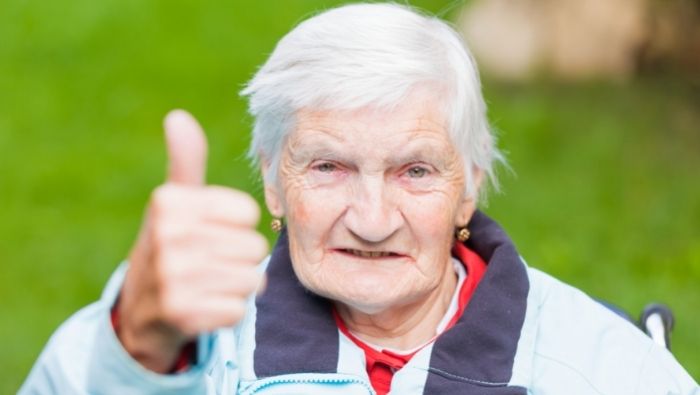12 Free (Or Almost Free) Ways To Protect the Elderly

Keep aging loved ones safe, healthy and protected without overspending with these free and nearly-free safety fixes.
Many of us have elderly parents, relatives or friends who we are either directly responsible for or who we try to help out whenever possible.
Keeping the elderly safe and secure doesn’t have to cost a whole lot. Often, simple little fixes can go a long way toward keeping them safe, healthy and protected. Here are 12 free and almost-free ways to protect elderly loved ones.
1. Help them pick up their house.
Falls are the number one cause of accidental death and injury for the elderly. Something as simple as removing a loose throw rug, moving an extension cord out of the way or storing piles of magazines in an out-of-the-way corner can significantly reduce senior falls.
2. Make simple repairs.
Broken stair risers, wobbly handrails, the old recliner with a severe lean, or anything that could cause a slip or fall should be fixed as soon as possible.
3. Make sure all safety items are in working order.
Test the smoke detector and add fresh batteries if needed, ensure the fire extinguisher is fully charged, and change burned-out lights to create the safest possible environment.
You deserve a comfortable retirement.
4. Install grab bars if needed, especially by the toilet, bathtub and maybe the bed.
These are inexpensive devices that can help prevent falls. One local program in our community provides these free of charge and even installs them!
5. Review their medication with them and their doctor at least every year.
Some medications can have side effects that can cause dizziness or loss of balance. Other medications can have side effects when used with certain other medications. Be sure the elderly person is aware of these possibilities.
Over-medication is another problem that can be helped, in part, by sorting their medications into inexpensive daily pillboxes that are sold at drug stores.
6. Encourage exercise!
Studies have shown that simple strength and balance exercises can significantly lessen the possibility of falls.
Senior exercise classes are available at local park department gyms and senior centers. Senior exercise programs can also be found online.
7. Make sure their home is secure.
Install solid door locks and a “peephole” on the front door. Take their name off of their mailbox as shysters have been known to address the elderly person by their name found on their mailbox to gain entrance into their homes.
Also, leave a generic message on the answering machine as opposed to the frail voice of an elderly person to discourage telemarketers.
8. Make sure they can see clearly.
Encourage them to have their vision checked and install nightlights if they need to get up in the middle of the night to go to the bathroom; the inability to see clearly is another cause of falls.
9. Encourage them to keep up their social life.
Research shows that a healthy social life can benefit senior health and longevity.
Check into local senior programs, senior volunteer programs and senior activities offered by local parks departments.
10. Make sure they are protected financially.
This may be a touchy subject b,ut reviewing their bills, insurance coverages and investments is an excellent way to head off fraud or over-billing.
One elderly lady was still paying each month to rent her phone from the local phone company, which was something that had cost a lot of money and had not been required for decades!
Also, be sure to have them review their credit report, which is available free of charge on an annual basis.
11. Check on them frequently.
A phone call works, but better yet, check in on them in person to ensure things are going well.
If they are prone to falling, have them wear a medic alert device.
12. Review their future plans.
Discuss (obviously tactfully) their Will, when they should stop driving, a plan for when they will need assisted living and, if possible, their funeral plans.
Talking about these sensitive issues beforehand can alleviate a lot of drama and grief at the time when these plans become necessary.
Obviously, each of these tips should be approached with care and respect. The bottom line is to protect the elderly as much as possible without being overbearing and encroaching on their freedom.
Related Articles
Reviewed October 2023
Sign me up for a comfortable retirement!
Sign me up for a comfortable retirement!
Popular Articles
- Comparing Retirement Housing Options
- How We Retired With Almost No Savings
- How Retirees Can Live on a Tight Budget
- 9 Things You Need to Do Before You Retire
- What You Need to Know About Long Term Care Insurance Before You Retire
- You Didn’t Save Enough for Retirement and You’re 55+
- Could Debt Derail Your Retirement? A Checklist
- Your Emergency Fund In Retirement: A Comprehensive Guide
- Managing Your 401k In Your 50s

